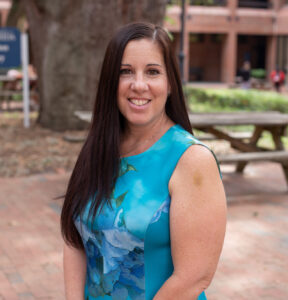Research Spotlight: Lori Dassa
Q & A with Lori Dassa, Ed.D., Director of Clinical Experiences and Partnerships in the School of Teaching and Learning
What basic questions does your research seek to answer?
In my current position, I have the opportunity to work with clinical experiences and key partners (community, district) to develop cohesive and sustainable relationships to better the experiences of our teacher candidates. These experiences in the teacher preparation arena at the College of Education lead to teacher retention.
Although this is more of an administrative role, it still aligns with my previous research. My research has always asked the question: how do we develop and sustain the pipeline from teacher preparation to teacher retention? I have followed an alternative perspective of Vygotsky’s Zone of Proximal Development (ZPD) that specifically relates to pre-service teachers. The literature defines the idea of the Zone of Teacher Development (ZPTD) as, “the distance between what teacher candidates can do on their own without assistance and a proximal level they might attain through strategically mediated assistance from capable others i.e., methods instructors or supervisors” (Warford, 2001, p. 253).
To expand on this theory, my research question is, how do we develop a teacher preparation and induction program that scaffolds our pre-service teachers to enter and stay in the field, cultivating into strong veteran teachers?
What makes your work interesting?
Teacher retention is a recurrent dilemma for teacher preparation programs and districts alike. I believe the authentic partnership and development of a pipeline between these entities can be the change agent needed to solve this problem. It is mutually beneficial for each partner. It highlights stronger teacher preparation and support for developing teachers which together can lead to successful sustainability in the field.
What are you currently working on?
I am currently working on this pipeline with the College of Education and its established partnerships along with the development of new opportunities. The emphasis is to be authentic and transparent in our needs across the partnerships and come to the table to be cohesive and focused on the need for capable, successful teachers who enter the field, and stay there.






